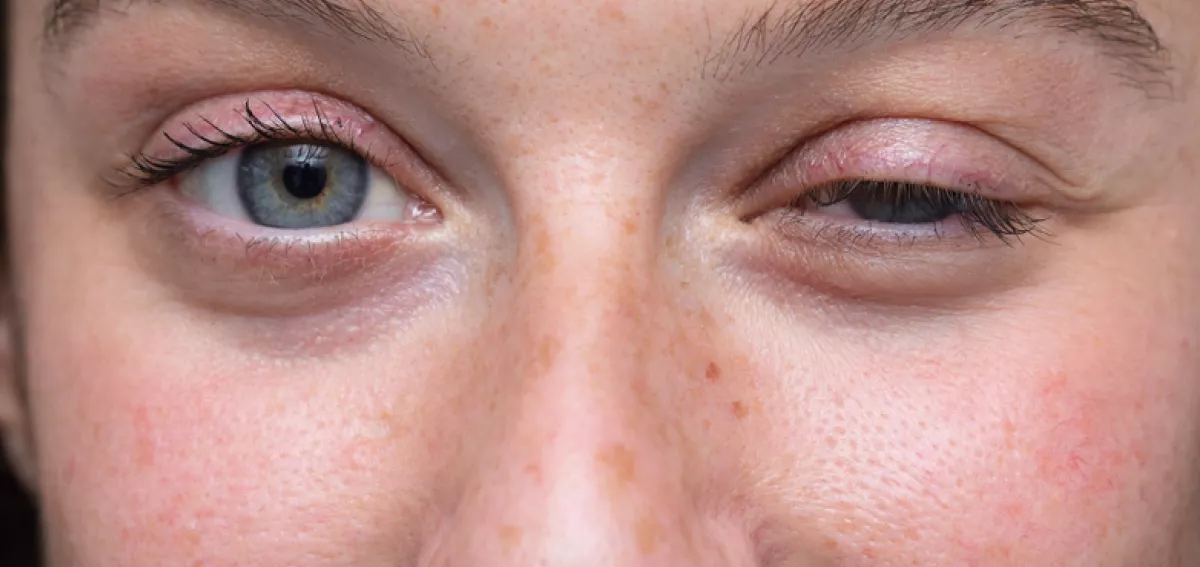Myasthenia Gravis (MG) is a rare and incurable autoimmune disorder that causes weakness in the skeletal muscles. This neuromuscular disorder occurs when the communication between the nerve cells and skeletal muscles becomes dysfunctional. This impairment prevents the occurrence of muscle contractions, leading to acute muscle weakness in the body.
As per reports, MG is one of the most common and significant disorders of neuromuscular communication and transmission. This relatively rare health condition affects only 15–20 individuals in 1,00,000 people.
How does MG occur?
The best neurologist in Kerala explained that MG is neither inherited nor contagious. This disorder develops later in life when antibodies in the body attack normal receptors in muscles. This, in turn, blocks the necessary chemical needed to stimulate muscle contraction that is responsible for causing movement across the body.
The damage to the neuromuscular membranes results in the reduction of a neurotransmitter substance. This substance, acetylcholine, is a vital component that aids communication between the muscles and the nerve cells. This reduction in the body leads to muscle weakness.
Studies and research over the years show that a temporary form of MG may develop in the foetus when a woman suffering from this ailment passes the antibodies to the foetus. In this case, the disorder is resolved within 2 or 3 months in infants.
Leading experts in the field of neurology are still trying to determine the exact cause of this autoimmune disorder. While many theories have been proposed in the medical community, most believe that the presence of infected proteins prompts an individual's immune system to attack acetylcholine.
Who is prone to MG?
MG affects women and men alike. However, it affects women under the age of 40 years and men above the age of 60 years. If a woman with MG is pregnant, she may pass the antibodies to her foetus. However, this is treatable within a period of 3 months.
What are the symptoms of MG?
Symptoms of MG often worsen with physical activity and improve after resting or a good night’s sleep. There is no cure, but treatment can relieve and even eliminate symptoms.
It is important to remember that not every individual will have all the associated symptoms of this ailment as the degree of muscle weakness and its intensity may vary from time to time.
Some of the common symptoms of MG are as follows
- Problems while walking upstairs or lifting heavy objects
- Difficulty in breathing
- Difficulty in chewing or swallowing
- Drooping of the eyelids
- Hoarse voice
- Double vision
- Trouble while talking
- Facial paralysis
- Fatigue.
How is MG diagnosed?
In the case of an MG diagnosis, you should book an appointment with one of the best neurologist in Kerala as it is a renowned place for advanced neuro treatment. They will conduct physical examinations, neurological examinations and other routine tests.
These examinations and tests include
- Checking the body’s reflexes
- Making certain areas of the eye move around
- Testing sensations in the body
- Testing proper motor functions
- Edrophonium test
- Blood test
- Electrodiagnostic test
- Diagnostic imaging
- Pulmonary function test
- Repetitive nerve stimulation test
- Chest imaging tests
- Tensilon test.
What are the Complications of MG?
- Muscle weakness and fatigue
- Difficulty in movement
- Difficulty in vision.
What is the treatment for MG?
As explained above, there is no cure for MG; however, this autoimmune disorder can be effectively managed through surgery, medicine, treatments and therapies.
Some of the possible treatments for MG include
- Thymectomy
- Monoclonal antibody treatment
- Anticholinesterase medications
- Immunosuppressive drugs
- Plasmapheresis
- Intravenous immunoglobulin.
How can MG be prevented?
As MG is an autoimmune disorder, it cannot be prevented. However, there are steps an individual can take to reduce the effects of symptoms or prevent them from worsening.
Some of the preventive measures include
- Managing stress levels
- Preventing bacterial and viral infections
- Avoiding extreme temperatures
- Limiting strenuous physical activities
- Regularly consulting a neurologist for review.
FAQs
1. What are the symptoms of MG?
Patients may experience double vision; weakness in the arms and legs; droopy eyelids; and difficulties chewing, swallowing, speaking and breathing.
2. At what age does MG occur?
This condition affects men and women, and it can happen at any age. On average, it affects women younger than 40 years of age and men older than 60 years of age.
3. What are the different ways to diagnose MG?
A neurologist may perform or order several tests to confirm the diagnosis of MG. These include a physical and neurological examination, an edrophonium test, a blood test, an electrodiagnostic test, diagnostic imaging and a pulmonary function test.
4. How is MG treated?
This autoimmune disorder is incurable but manageable. There are several treatments, therapies and surgical options available to help reduce and improve muscle weakness. They include thymectomy, monoclonal antibody treatment, anticholinesterase medications, immunosuppressive drugs, plasmapheresis and intravenous immunoglobulin.
5. Is MG manageable?
With treatment, most patients with MG can experience significant improvement in their muscle weakness and can lead normal or near-normal lives.







